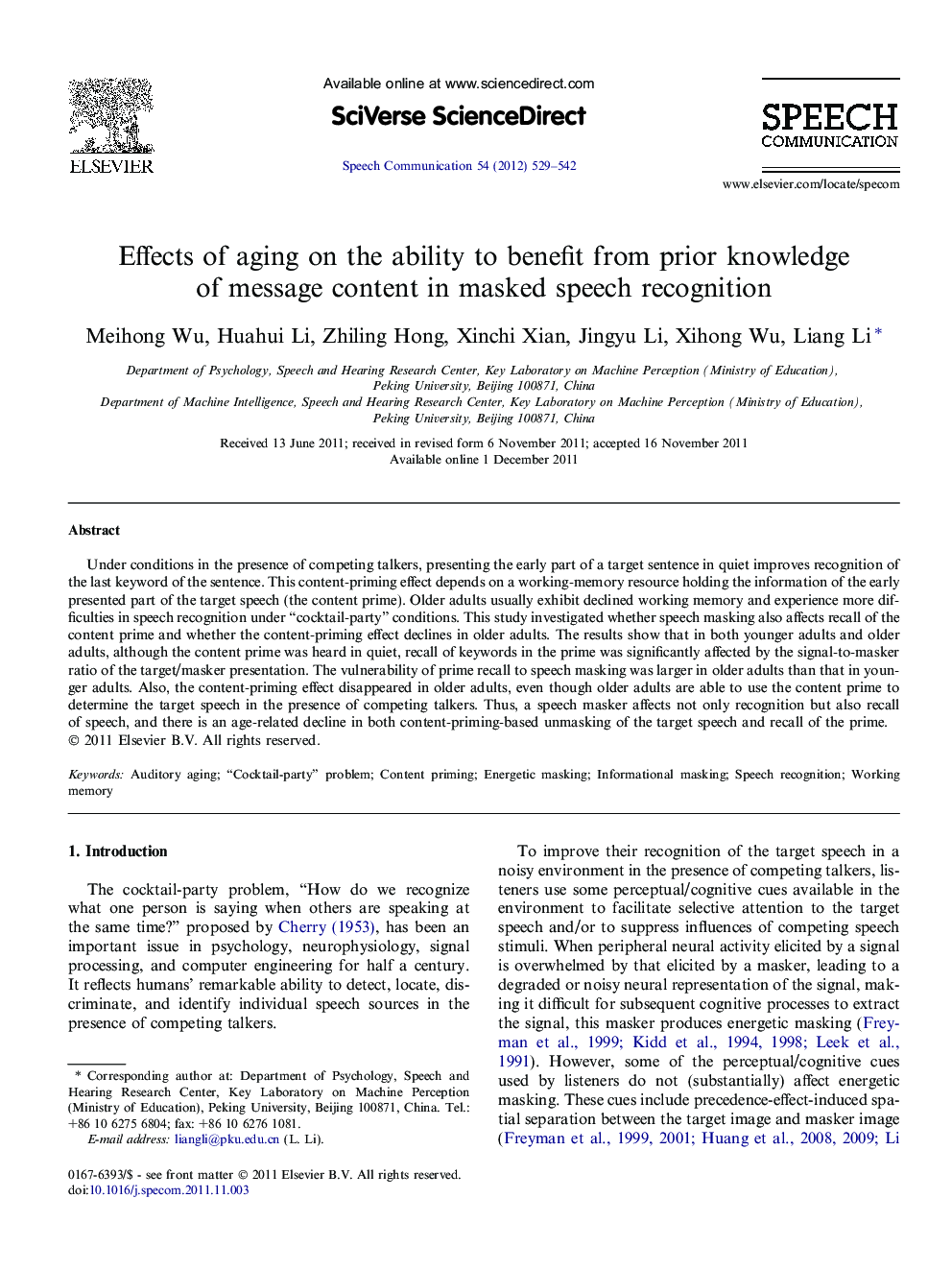| Article ID | Journal | Published Year | Pages | File Type |
|---|---|---|---|---|
| 566063 | Speech Communication | 2012 | 14 Pages |
Under conditions in the presence of competing talkers, presenting the early part of a target sentence in quiet improves recognition of the last keyword of the sentence. This content-priming effect depends on a working-memory resource holding the information of the early presented part of the target speech (the content prime). Older adults usually exhibit declined working memory and experience more difficulties in speech recognition under “cocktail-party” conditions. This study investigated whether speech masking also affects recall of the content prime and whether the content-priming effect declines in older adults. The results show that in both younger adults and older adults, although the content prime was heard in quiet, recall of keywords in the prime was significantly affected by the signal-to-masker ratio of the target/masker presentation. The vulnerability of prime recall to speech masking was larger in older adults than that in younger adults. Also, the content-priming effect disappeared in older adults, even though older adults are able to use the content prime to determine the target speech in the presence of competing talkers. Thus, a speech masker affects not only recognition but also recall of speech, and there is an age-related decline in both content-priming-based unmasking of the target speech and recall of the prime.
► Pre-presenting early part of a target sentence in quiet improves recognition of the last keyword. ► Recall of prime keywords is affected by speech masking. ► The vulnerability of prime recall to speech masking is larger in older adults. ► The content-priming effect disappears in older adults. ► Both younger adults and older adults are able to use the content prime to determine target speech in multiple-people talking.
